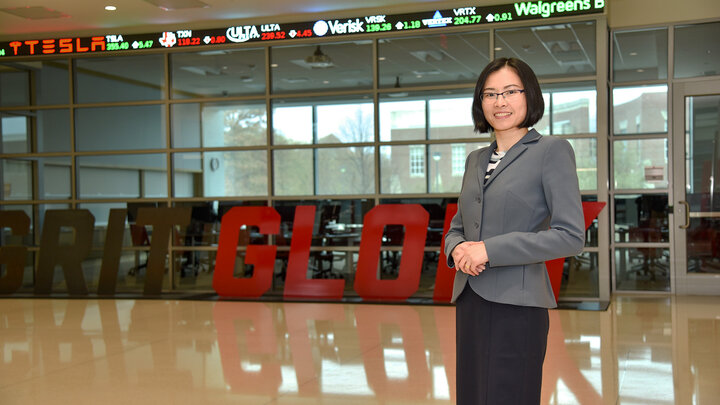After more than a decade of unusually low interest rates, many feared that easy credit conditions were prompting firms to over-borrow, over-invest and take too much risk. A new study by University of Nebraska–Lincoln finance researcher Liying Wang offers real-time evidence of how companies behave when credit suddenly becomes abundant.
“There is much evidence about what happens during credit crunches when firms cut investments, reduce hiring and struggle to refinance debt, but much less is known about whether the reverse is true in easy credit markets,” said Wang, associate professor of finance.
Published in Management Science, the paper, “Firms’ Response to Credit Supply: Evidence from Upsized Corporate Bond Offerings," is co-authored by Edith S. Hotchkiss, professor of finance at Boston College; Hurong Sun, assistant professor of finance at Xichang University; and Yijia (Eddie) Zhao, associate professor of finance at the University of Massachusetts Boston. It uses detailed underwriting data from bookbuilding processes to capture firms’ decisions when investor demand unexpectedly surges.
“Because we observe firms’ real-time response to unexpectedly strong investor demand — before anything about the firm changes — we were able to isolate the effect of an increase in credit supply. This setting allows us to determine whether accommodative credit markets truly encourage firms to overextend themselves,” Wang said.
The researchers analyzed two indicators of realized credit supply — oversubscription and yield tightening — and found that both significantly influence when and why firms choose to upsize their bond offerings.
“The results show that firms act much more prudently than many feared. When credit unexpectedly becomes abundant, firms often do raise more capital, but they primarily use the additional proceeds to reduce bank debt and increase cash holdings, strengthening financial flexibility. For riskier issuers, any increase in leverage tends to be temporary rather than persistent," Wang said.
They found no evidence of overinvestment, even during accommodative market conditions. Wang noted that firms with strong investment opportunities did increase investment after upsizing but appeared to be strategic and not opportunistic or excessive.
"In short, while firms clearly struggle when credit tightens, the mirror image does not occur in easy credit markets. Firms do not behave recklessly when credit becomes cheap. Instead, they maintain discipline and internal financial targets. That insight matters for policymakers, investors and managers alike because it clarifies how credit supply shocks shape real-world corporate behavior."




